


Mobile No: 8331997303, Mail Id: headcivil29@gmail.com
The Civil Engineering Department at University College of Engineering, Osmania University is a founding Department and a leading center for education, research, and consultancy in Civil Engineering. It offers undergraduate and postgraduate programs, including B.E., M.E., and Ph.D degrees in various specializations. The Department is known for its strong industry links, high-quality research output, and contributions to infrastructure development.
Key Features:
VISION:
To be as a leading academic Department on pace with global standards and contribute to the regional growth and meet the Challenges of Civil Engineering Profession.
MISSION:
Program Educational Objectives (PEOs)
PEO1: Impart basic knowledge in the field of Civil Engineering.
PEO2: Develop skills to analyse and provide viable solutions to various Civil Engineering problems.
PEO3: Enhance communication skills and encourage team work.
PEO4: Prepare Civil Engineering professionals with zeal for life-long learning, and work for sustainable development of society with ethics.
| Head of the Department | |
|---|---|
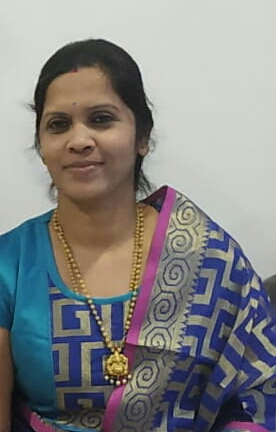 |
Prof. K. L. Radhika (Emp. ID- 47029) (VIDWAN Id : 600502)B.Tech(JNTU), M.E(OU), Ph.D(NITW) Areas of InterestsStructural analysis and design, and Concrete Technology |
| Senior Professor, Vice Chancellor, Osmania University | |
 |
Dr. Kumar Molugaram (Emp. ID- 47020) (VIDWAN Id : 269066)B.E.(OU), M.Tech.(JNTU), Ph.D(IITB), MISTE, MIRC, MIE, FIE, MIIBE, MIUT, MISR, MWCTR, MASCE, MTRB Areas of InterestsTraffic Engineering, Rural roads Development, Highway Material Testing, Pavement Systems Design and Evaluation, Micro-simulation, Optimisation Techniques, Land-use Transportation, Urban Transportation Planning, Behavioural Modeling and Intelligent Transportation. |
| Senior Professor | |
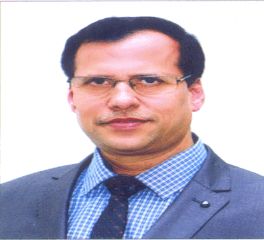 |
Dr.V.Bhikshma (Emp. ID- 47019) (VIDWAN Id : 586010)B.E.(OU),M.Tech (JNTU), Ph.D(O.U) Areas of InterestsStructural Analysis and Design, Concrete composites, Bridge Engineering, Reinforced cement concrete, Prestressed concrete, Concrete technology, Earth quake engineering, Repair and Rehabilitation of Structure. |
| Senior Professor | |
 |
Dr. M. Gopal Naik (Emp. ID- 47024) (VIDWAN Id : 589351)B.E.(OU), M.E.(OU), Ph.D.(IITB), MASCE, IWRS, ISRS, ISH, ISG Areas of InterestsSurface hydrology, Hydraulics, Watershed management, Urban watershed management, FEM application to Water Resources Engineering, remote sensing and Geographical information systems, Global Positioning Systems, Applications in Hydrology and Water Resources Engineering. |
| Professor | |
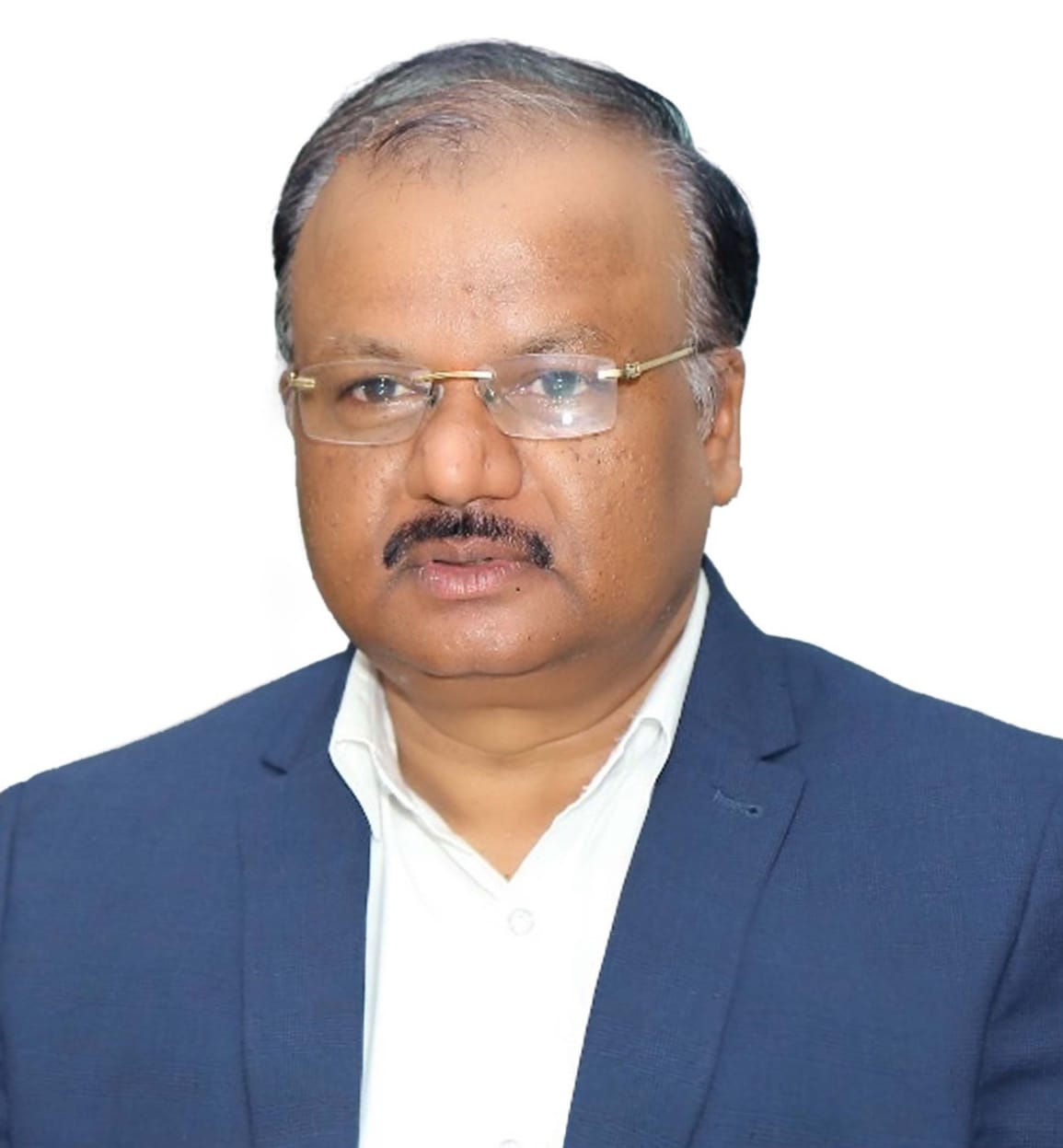 |
Prof .P.RajaSekhar (Emp. ID- 47018) (VIDWAN Id : 599518)B.E.(OU), M.E(OU), Ph.D (IITB), MISTE, MISRS, MIWRS Areas of InterestsWater resources engineering, Hydrology and water management, Ground water hydrology, Ground water pollution studies at normal gravities (1g) and enhanced gravities (Ng- centrifuge modeling studies) |
| Professor | |
 |
Prof. M. V. S. Sridhar (Emp. ID- 47030) (VIDWAN Id : 600693)B. Tech(JNTU), M. Tech(IIT B), Ph.D(OU) Areas of InterestsGeotechnical Engineering, Ground Improvement Techniques, Geosynthetics, Soil Dynamics and Machine Foundations, Geotechnical investigations. |
| Professor | |
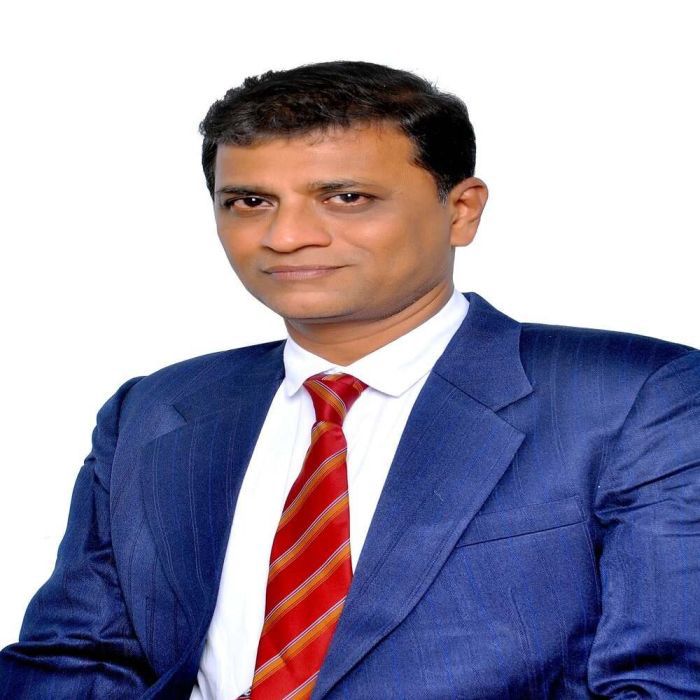 |
Prof. K. ShashiKanth (Emp. ID- 47033 ) (VIDWAN Id : 582667)B.Tech(SVU) ME-CE (UVCE-B), M.Tech- CS(JNTU), PhD (IITB) Areas of InterestsSurface water Hydrology, mathematical modeling to water resources, ANN and GIS applications. |
| Professor | |
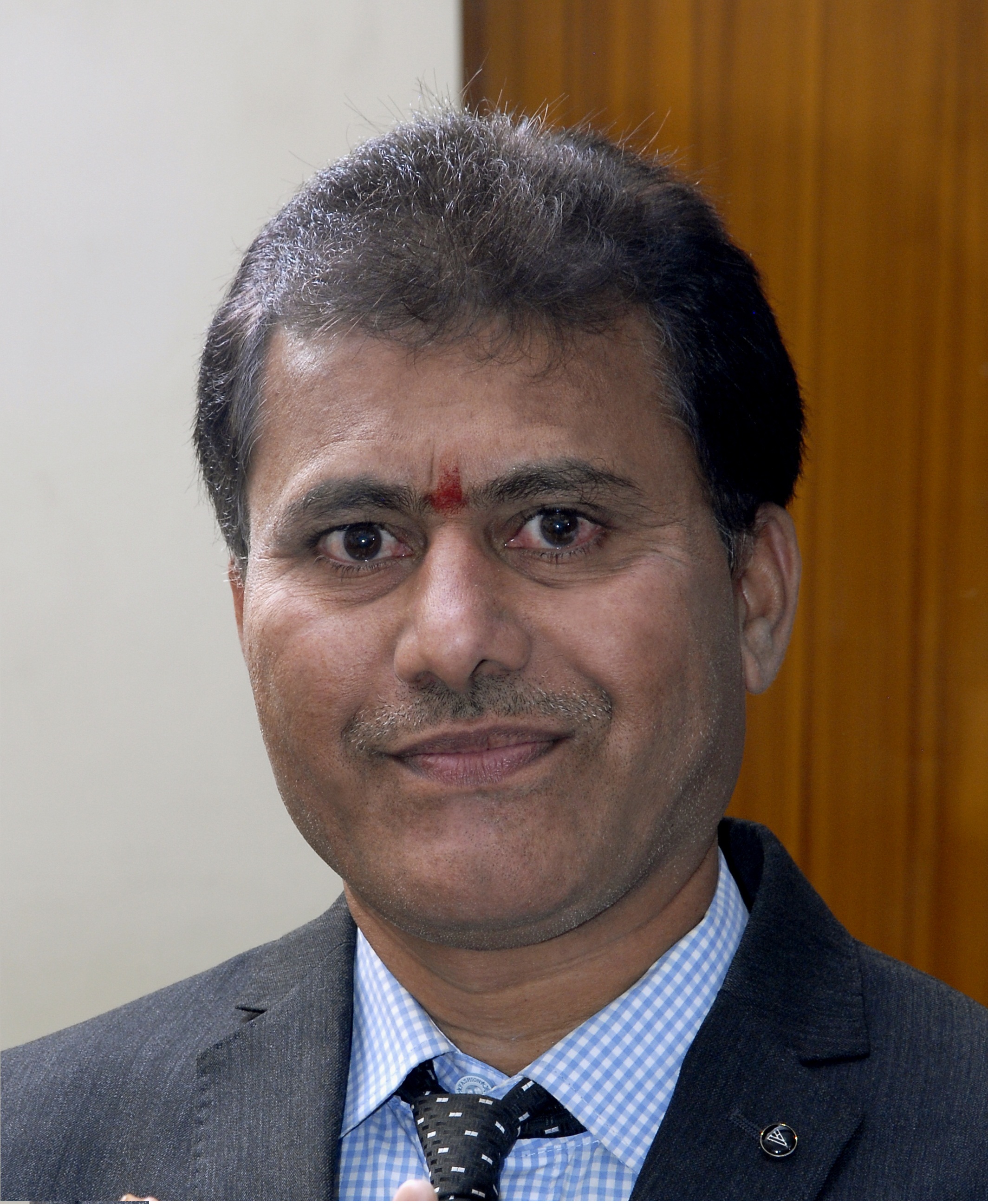 |
Prof. D. Rupesh Kumar (Emp. ID- 47034 ) (VIDWAN Id : 582664)B.Tech(NU), M.Tech(JNTU), Ph.D(JNTU) Areas of InterestsDesign of RCC & steel structures, Finite element analysis, Earthquake resistant design of structures, Structural shape optimization, Bridge Engineering. |
| Professor | |
 |
Prof. D. Rajashekar Reddy (Emp. ID- 47032 ) (VIDWAN Id : 582234)B.E, M.Tech, Ph.D(IIT-KGP) Areas of InterestsTransportation Engineering, Pavement materials, Pavement analysis, Pavement Construction |
| Professor | |
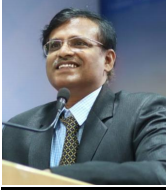 |
Prof. R. Srinivasa Kumar (Emp. ID- 47031 ) (VIDWAN Id : 599701)B.E(OU), ME(MS University of Baroda), Ph.D(IIT-KGP) Areas of InterestsTransportation engineering, Highway planning, pavement design, evaluation and maintenance, pavement material characterization and statistical analysis of data. |
| Professor | |
 |
Prof. D. Annapurna (Emp. ID- 47035 ) (VIDWAN Id : 582495)B.Tech(SKU), ME(OU) Areas of InterestsStructural analysis and design computer aided analysis, STAAD.PRO |
| Professor | |
 |
Prof. (Ms). S.V.S.N.D.L. Prasanna (Emp. ID- 47036 ) (VIDWAN Id : 582209)B.E(OU), ME(OU) Areas of InterestsComputational Fluid Dynamics, Drainage Engineering, Irrigation Water Management. |
| Assistant Professor | |
 |
Mrs. P. Anuradha (Emp. ID- 47037 ) (VIDWAN Id : 595066)B.Tech(JNTU), M.Tech(JNTU) Areas of InterestsStructural Analysis And Earth Quake Engineering |
| Assistant Professor | |
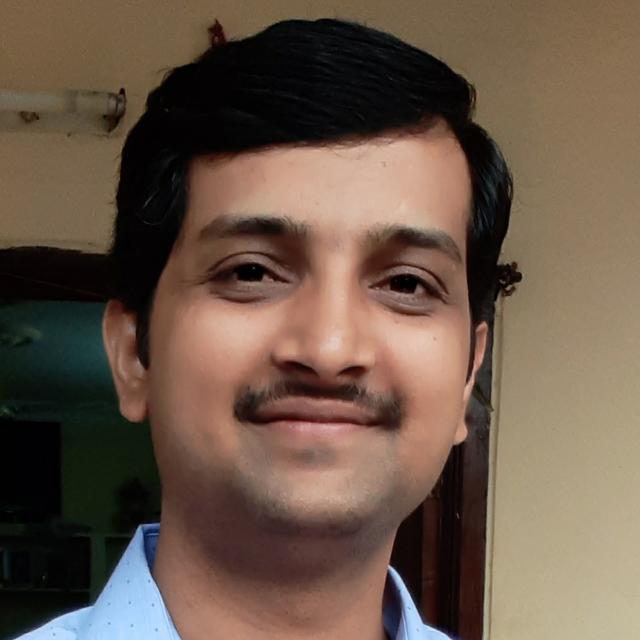 |
Mr. R. Rajender (Emp. ID- 47038) (VIDWAN Id : 588284)B.E(OU), M.Tech(IISC, B) Areas of InterestsStructural Analysis |
| Assistant Professor | |
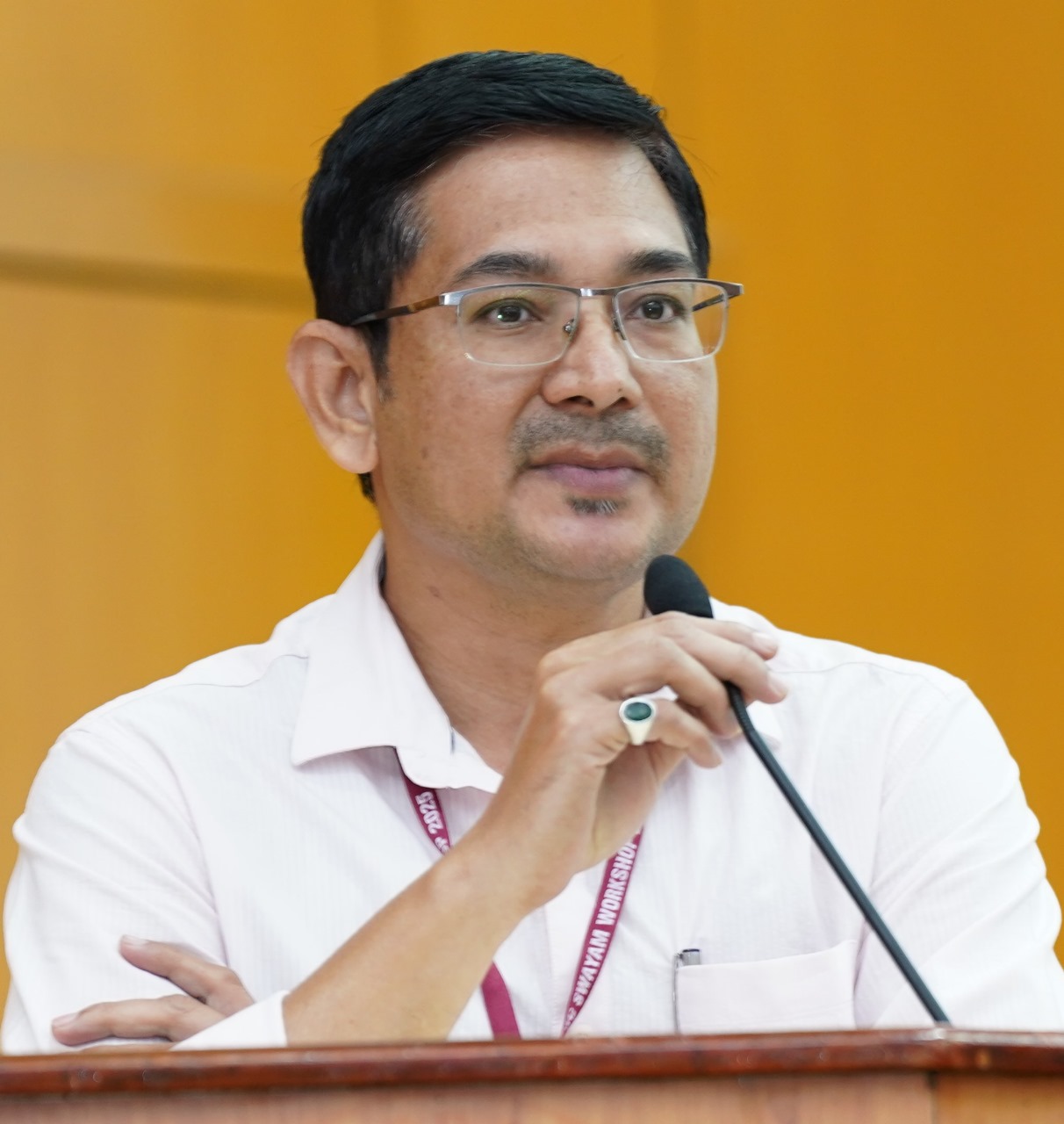 |
Dr.Harish Guptha (Emp. ID- 29009) (VIDWAN Id : 581848)BSc, MSc, Ph.D(IITR) Areas of InterestsEarth Surface Process and Climate Moderation; Surface Hydrology, Global Bio-geochemical Cycles and Environmental Pollutants in rivers; Urban Water Management |
| Assistant Professor (Contract) | |
 |
Ms. A. Usha Sree (Emp. ID- 803618) (VIDWAN id : 600865)M.Tech Areas of Interests |
| Assistant Professor (Contract) | |
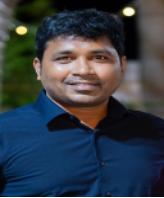 |
Mr. L. Ajay Kumar (Emp. ID- 802115) (VIDWAN id :588285)M.E Areas of InterestsStructural Analysis and Design, Earthquake-Resistant Design, Advanced Concrete Technology, Bridge Engineering,Construction Materials and Methods,Structural Health Monitoring (SHM) |
Under Graduate
| S. No. | Name of the Programme | Duration (yrs) |
Year of Starting | Intake |
|---|---|---|---|---|
| 1 | B.E. Civil | 4 | 1929 | 60 |
| 2 | B.E. Civil for Working Professionals (CEEP) |
3 | 2023 | 30 |
Post Graduate
| S. No. | Name of the Programme | Duration (yrs) |
Year of Starting | Intake |
|---|---|---|---|---|
| 1 | M.E. Structural Engineering |
2 | 1961 | 25 |
| 2 | M.E. Water Resources Engineering |
2 | 1961 | 10 |
| 3 | M.E. Geotechnical Engineering |
2 | 1961 | 10 |
| 4 | M.E. Transportation Engineering |
2 | 2008 | 15 |
| 5 | M.E. Structural Engineering (CEEP) |
3 | 1994 | 15 |
Doctoral Programmes
Ph.D. in Geotechnical Engineering, Hydro mechanics & Water Management, Structural Engineering, Transportation Engineering, Construction Engineering and Management, and Remote Sensing.
Details of Research Projects of the faculty
| S. No. | Name of the Faculty | Project Title | Duration |
Amount ( lakhs) |
Funding Agency |
|---|---|---|---|---|---|
|
2021-22
|
|||||
| 1 | Prof. M.Kumar |
A study on curved speed pumps (CSH) and its |
3 years | 38.50 | DST-SERB, Govt. of India. |
| 2 |
Prof. V.Bhikshma |
Experimental Investigation on Flexural and shear |
2 years |
2.35 Lakhs, |
UGC Minor Research |
| 3 |
Prof. M.GopalNaik & Dr.Harish Gupta |
Planning and Development of Climate Resilient Water |
4years |
74.38 lakhs |
SPARC-MHRD |
| 4 |
Prof. M. Gopal Naik |
Science and Engineering Research Board (SERB) |
40.13 Lakhs |
Department of |
|
| 5 |
Prof. M. V. S. Sreedhar |
Laboratory investigations on the Uplift Capacity of |
1 years |
3.20 lakhs
|
Industry-M/s |
| 6 |
Prof K Shashikanth |
Impacts of climate change on Indian rainfall and Temperature |
1.50 Lakhs |
UGC MRP |
|
| 7 | Dr. Harish Gupta |
MOOCs on Water Resources and Watershed Management (Co-PI) |
3 years |
13.50 |
UGC |
|
2022-23
|
|||||
| 1 |
Prof. M. Kumar |
UGC, Govt of India |
2 years |
4.00 Lakhs |
UGC, Govt of India |
| 2 |
Prof. M. Kumar |
SERB, DST, GOI |
3 years |
38.23 lakhs |
SERB, DST, GOI |
|
2023-24
|
|||||
| 1 |
Prof Shashikanth .K& Dr. Harish Gupta |
Assessment of climate change Impact on Indian Monsoon Precipitation using new age CMIP6 Dataset: Implication to water security in the Godavari and Narmada Basin |
3 years |
44.18 |
SERB |
| 2 |
Dr. Harish Gupta |
“Source to sink Transport and Transformations of |
3 Years |
37.93 |
SERB |
Ph.D. guided /Ph.D. awarded
Ph. D Guidance
|
Research Guide |
Name of Scholar |
Topic of Research |
University & year of registration |
Status |
|
Sr. Prof. M. Kumar |
S. Ramesh kumar |
A study on mode choice travel behaviour in metropolitan cities : A case study of hyderabad |
2023 |
Awarded |
|
S. Praveen |
Modeling of Leisure Travel Behavior a case study of Hyderabad and Delhi Cities |
2024 |
Awarded |
|
|
Ch. Anukosh |
A Study on pedestrian crossing behaviour using deep Learning techniques |
2024 |
Awarded |
|
|
Shabonathabassum |
Driver behaviour modelling for Indian condition |
2025 |
Awarded |
|
|
H. Patkin |
Performance evaluation of bitumen binders and mastic using Nanoclay |
2025 |
Awarded |
|
| Sr. Prof. V. Bhikshma |
KNV Chandra Sekhar |
Basis splines to perform ISO Geometric Analysis for Topology Optimization of Continuum mechanics |
2024 |
Awarded |
|
Ahmadshah Abrahim |
Experimental investigation on strength characteristics and flexural behaviour of light weight reactive powder concrete |
2025 |
Awarded |
|
|
K. Naresh kumar |
Experimental Study on Mechanical Properties and performance of ultra high strength(M180-M150) Fiber Reinforced concrete members in flexure |
2025 |
Awarded |
|
| Sr. Prof V. bhiksham and Prof N. Muralikrishna |
R.prashanthkumar |
Flexural behaviour of twisted steel fiber reinforced concrete members and investigation on stress block parameters |
2023 |
Awarded |
| Sr.Prof.M.Gopal Naik |
Seyed Ali Mousavi Deh Mourd |
An Investigation on Construction Crisis Framework based on the Multiple Criteria Decision Making Models |
2023 |
Awarded |
|
G. Srikanth |
Construction Delay Assessment using Fuzzy Expert System: A Case Study of Hyderabad Construction Sector |
2024 |
Awarded |
|
|
A. Naresh |
Hydrodynamic Studies for water-sensitive Urban Design of urban Flooding in Hyderabad City, India |
2024 |
Awarded |
|
|
M. Aditya |
Data-Driven Approach to Evaluate supplier Sustainability in Construction supply chains: A Study of Ready Mix Concrete Supply Chains in Hyderabad Metropolitan Area |
2025 |
Awarded |
|
|
Prof. D. Rupesh Kumar |
K. Divya Bharathi |
A Study on Bacillus Subtilis Bacterial concrete with Nano silica |
2025 |
Awarded |
| Prof. R. Srinivasa kumar |
Rohith SR Mane, |
“A Study on Sub grade Soil Stabilization by Using Bio-Enzyme” |
2024 |
Awarded |
|
Prashanth Kumar Soma |
“Development of Pavement Distress Assessment Models for Flexible Pavement Maintenance” |
2024 |
Awarded |
|
|
K. Shasikumar |
Evaluation of operational performance of roundabout Intersection under heterogeneous traffic conditions |
2025 |
Awarded |
|
|
Dr. S. V. S. N. D. L Prasanna |
D.Yashwanth |
Evaluation of environmental impacts of building materials for residential projects and experts analysis of eco friendly bricks this |
2024 |
Awarded |
|
Prof. M. Anjeneya prasad |
K. Maheshkumar |
Development of models for network optimization, Aquifer Geometry and G.W.Mgrt using numerical and soft computers techniques |
2023 |
Awarded |
| Prof. Ravande kishore |
Keshav Reddy |
Non destructive testing of concrete A Pvachicelaprel |
2023 |
Awarded |
|
Kalidas nitturkar |
Performance Evaluation of Ternary Blended Recycled Aggregate concrete with Graded hybrid fibers |
2023 |
Awarded |
|
|
Temperature distribution in concrete bridges |
2023 |
Awarded |
|
|
P.Srinivasreddy |
A case study on performance of bacterial concrete with fly ash |
2023 |
Awarded |
|
| Prof N. Muralikrishna |
Ms P. Anuradha |
Analysis of Infill Frames using FEM approach |
2023 |
Awarded |
|
Mohd masihuddinsiddique |
Tilted minimization of torsion in asymmetric buildings using GA technique |
2023 |
Awarded |
|
|
Prof N. Suresh Kumar |
Sri Ramya |
Simulation of flow using Analysis CFD for specific water resource egg application |
2024 |
Awarded |
|
Prof. V. S. S. Kumar |
Konda Rahul |
Analysis and forecasting of the accidental deaths and const sites using reusable Linear regression as model |
2025 |
Awarded |
Infrastructural Facility
The following section outlines the facilities available and extendable for carrying out student project work, both on and off campus. The departmental resources have been effectively utilized to support various stages of student projects, from experimentation to analysis. A summary of the departmental facilities and their utilization for project-related activities is provided in the Table below.
| S. No. |
Name of the Laboratory |
Facilities |
Utilization |
|---|---|---|---|
| 1 | Materials Testing Lab |
|
The facilities available in the laboratory are extensively used to conduct various project works, including the testing of materials such as steel, concrete, bricks, and wood under different loading conditions.
|
| 2 | Geology Lab |
|
The field of engineering geology primarily focuses on the interaction between the earth and human-made structures, examining how geological processes and earth materials affect the design, stability, and longevity of structures, as well as human activities.
|
| 3 | Survey Lab |
|
Students use this laboratory to explore and apply various surveying techniques, gaining practical experience in data collection, analysis, and interpretation.
|
| 4 | Fluid Mechanics Lab |
|
The study of fluids—encompassing liquids, gases, and plasmas—and the forces acting upon them is fundamental to many civil engineering applications.
|
| 5 | Geo-technology Lab |
Software:
|
The laboratory is fully equipped to perform essential soil characterization tests.
|
| 6 | Transportation Lab |
|
Students in this field focus on the planning, design, construction, operation, and maintenance of roads, bridges, and tunnels to ensure the safe and efficient transportation of people and goods.
|
| 7 | Environmental Engineering Lab |
|
Students engage in the process of treating wastewater from industries and domestic sources to make it suitable for reuse.
|
| 8 | Concrete Lab |
|
The Concrete Technology Laboratory provides technical services for testing and research on the structural behavior and properties of concrete and related materials.
|
| 9 | Structural Dynamics Lab | Vibration Comprehensive Experimental Teaching Equipment |
The utilization of the Structural Dynamics Laboratory focuses on the study and analysis of how structures respond to dynamic loads, such as vibrations, earthquakes, wind forces, and moving loads.
|
| 10 | Engineering Mechanics Lab |
|
The facilities available are primarily focused on practical applications and experiments that support the understanding of fundamental principles in mechanics, such as force, equilibrium, friction, moments, and motion.
|
| 11 | Water Resource Engineering Lab |
|
The utilization of the Water Resources Engineering Laboratory involves the study of hydraulics and fluid flow, focusing on understanding the behavior of flow in both open channels and closed conduits.
|
| 12 |
Computer Lab |
UG Lab
PG Lab
Software:
|
Students utilize this laboratory for a wide range of design, development, and analysis-based projects, leveraging the existing software and tools available.
|
| 13 | Auto CAD Lab |
Software:
|
This laboratory is utilized by students for carrying out design, development, and analysis projects using the available software tools.
|
List of Publications in International / National Journals by Faculty
The following is the year wise list of publications published by the faculty in International/ National Journals
2024-2025
| Faculty Name | Paper Title | Journal Name | ISSN No. | Volume No. & Year |
|---|---|---|---|---|
| Prof. K.L. Radhika |
“Thermodynamic Modelling of Cementitious Paste Containing Sugarcane Bagasse Ash and Rice Husk Ash" |
Lecture Notes in Civil Engineering |
2024 |
|
|
Flexural behaviour of Hybrid and Graded Fibre Reinforced Concrete |
Springer of Science and Business Media |
2024 |
||
|
Seismic response of RC framed irregular structures, Materials Today Proceedings |
|
2023 |
||
|
Design of L-cavity using refractive and reflective elements |
Optics Communications |
2024 |
||
| Sr. Prof. M. Kumar |
Rheological and microstructural investigation of sodium-based montmorillonite nanoclay modified bitumen at mastic scale |
Innovative Infrastructure Solutions |
Volume 9 |
15 November 2024 |
|
Functional and rheological investigations on hydrophilic nanoclay blended bitumen |
Discover Sustainability |
Volume 5 |
18 October |
|
|
Laboratory investigation of high-temperature functional characterization of organo-modified nanoclay -enhanced bitumen
|
Results in Engineering |
Volume 25 |
6 January 2025 |
|
| Sr. Prof. V. Bhikshma |
Experimental investigation on mechanical properties of lightweight reactive powder concrete using lightweight expanded clay sand |
Asian Journal of Civil Engineering |
|
|
|
Experimental Investigation on Reactive Powder Concrete Designed with Micro Silica and Alccofine 1203 |
Earth and Environmental Science |
|
||
|
Basic Splines for Topology Optimization of Elements of Building |
iNCMDAO |
|
||
|
Investigating stress-strain characteristics in Geopolymer Concrete with Recycled aggregate |
International Journal of Multidisciplinary Research and Analysis |
|
||
|
Investigation On High-Strength Geopolymer Concrete with UFGGBS and Recycled Coarse Aggregate |
Library Progress International |
|
||
|
Experimental Investigation on Reactive Powder Concrete designed with micro silica and Alccofine 120 |
ICACC |
|
||
|
Experimental Investigation on Reactive Powder Concrete incorporating Expanded clay sand |
International conference, Odisha |
|
||
|
Experimental Investigation on Reactive Powder Concrete Designed with Micro silica and Alccofine1203 |
IOP Conference Series: Earth and Environmental Science |
Volume 1409 |
||
|
Sr. Prof. M. Gopal Naik |
A Study on Exploring and Prioritizing Critical Risks in Construction Project Assessment |
International Journal for Multidisciplinary Research (IJFMR) |
Volume 6, |
July-August 2024 |
|
Assessment Of Construction Risk Using Mamdani Fuzzy Inference System: A Case Study of the Construction Industry in Hyderabad City |
Nanotechnology Perceptions |
Volume 20 No. 12 (2024) 686-707 |
2024 |
|
|
Investigation on Built-up, Population and Road Network Density Dynamics using GIS, Regression and Causation Analysis– A Case Study of Hyderabad City, India |
ASCE-Journal of Urban Planning and Development |
DOI:10.1061/JUPDDM/UPENG-4186 |
2023 |
|
| Prof. K. Shasikanth |
IoT Based Sewage Overflow Detection and Harmful Gas Monitoring System |
|
|
2025 |
|
Statistical Downscaling of CMIP6 based Monsoon Rainfall over India and its Assessment |
|
|
2024 |
|
| Prof. D. Rupesh Kumar |
“A Comparative Study of Plus (+) Shaped Multi-storey Building using Rectangular and Special Shaped Columns” |
Journal of Engineering, Computing & Architecture |
V. 14, No 6 |
June, 2024 |
|
Comparative Study on Recycled Plastic Aggregates in Concrete |
Journal Of Engineering, Computing & Architecture |
V. 14, No 5 |
May, 2024 |
|
|
Rapid Evaluation of Compressive Strength of HDPE-Plasto Sand Aggregate Concrete |
1st International Conference on Sustainable Materials, Methodologies, Technologies & Applications in Engineering (ICS2MT-2K25) |
Department of Civil Engineering, CVR College of Engineering, Hyderabad, India.
|
24-25 January, 2025 |
|
|
Effect of Shear Walls on Multi-storey Buildings with Rectangular and Special Shaped Columns |
3rd International Conference on Multi-functional Materials (ICMM-2024) |
Geethanjali College of Engineering and Technology, Keesara, Telangana, India in collaboration with American Institute of Physics (AIP). |
19-21 December 2024 |
|
|
Innovative Utilization of HDPE-Plastic Aggregates in Concrete: Fresh and Mechanical Properties |
Second International Conference in Civil Engineering for a Sustainable Planet (ICCESP 2024 |
Habilete Learning Solutions in collaboration with American Society of Civil Engineers (ASCE) and Marian Engineering College Trivandrum, Kerala, India. |
06-08 December 2024 |
|
|
Durability Properties of Concrete with HDPE Plastic Aggregate |
Second International Conference in Civil Engineering for a Sustainable Planet (ICCESP 2024) |
organized by Habilete Learning Solutions in collaboration with American Society of Civil Engineers (ASCE) and Marian Engineering College Trivandrum, Kerala, India. |
06-08 December 2024 |
|
|
Innovating Concrete with Recycled Plastics (HDPE) Aggregates |
Second International Conference in Civil Engineering for a sustainable planet (ICCESP 2024 |
Habilete Learning Solutions in collaboration with American Society of Civil Engineers (ASCE) and Marian Engineering College Trivandrum, Kerala, India. |
06-08 December 2024 |
|
|
Innovative Revolution Introducing Sustainable HDPE-Plastic Aggregates for Concrete |
7th International Conference on Multi-disciplinary Research Studies and Education (ICMDRSE-2024 |
Institute for Educational Research and Publication (IFERP), Kuala Lumpur, Malaysia. |
25-26 May 2024 |
|
|
Innovative HDPE Plastic Aggregate in Concrete enhancing Sustainability |
IOP Conference Series: Earth and Environmental Science, In: Third International Conference on Advances in Construction Engineering for Sustainability (ICACC-2024) |
Vasavi Engineering College, Hyderabad, India, |
26-27 April 2024 |
|
| Prof. D. Rajashekar Reddy |
A GIS Approach for spatial analysis of traffic Accidents in the city of Hyderabad |
International Journal of Engineering and Science Invention (IJESI) |
Volume 13 |
December,2024 |
|
Mode Choice Behaviour Analysis Using MNL Regression: A Case Study in Uppal |
International Journal of Innovative Research in Technology |
Vol 11 |
December, 2024 |
|
|
Enhancing Transportation Planning Through Travel Behaviour Clustering in Machine Learning |
Journal of Emerging Technologies and Innovative Research |
Vol 11 |
December, 2024 |
|
|
Planning of Cross Pedestrian Facilities in Urban Areas |
International Journal of Engineering and Science Invention (IJESI) |
Vol 13 |
September, 2024 |
|
|
A Study on Pedestrian Level of service of Sidewalks Using PTV VISWALK |
Journal of Emerging Technologies and Innovative Research |
Vol 11 |
August, 2024 |
|
|
Stabilization of sub grade material by using additives |
Journal of Emerging Technologies and Innovative Research |
Vol 11 |
|
|
|
Techno-Economical design of flexible pavement based on the stabilization of soil using stone dust as an additive |
International Journal of Innovative Research in Technology |
Vol 11 |
July, 2024 |
|
|
Effect of Aggregate gradation and binder parameters on rutting of bituminous pavements |
International Journal of Innovative Research in Technology |
Vol 11 |
July, 2024 |
|
|
Study on pedestrian road crossing Behaviour under mixed traffic conditions |
International Journal of Innovative Research in Technology |
Vol 11 |
June, 2024 |
|
| Prof. R. Srinivasa Kumar |
Assessment of Strength Properties of Clayey Sand Soils Admixed with Marble Powder, GGBS and Geotextile Reinforcement |
International Research Journal of Multidisciplinary Technovation |
Volume 6 |
2024 |
|
Strength Evaluation of Clayey Sand Admixed with Wollostonite with a Special Reference to Construction of Geotextile Reinforced Subgrade |
Indian Journal of Science and Technology |
ISSN 09746846 |
2024 |
|
|
Assessment of Strength Properties of Clayey Sand Soils Admixed With Marble Powder, GGBS and Geotextile Reinforcement |
International Research Journal of Multidisciplinary Technovation |
2024 |
||
| Prof. D. Annapurna |
An experimental investigation on flexural strength of bamboo reinforcement concrete |
International Journal of Emerging Technologies and Innovative Research |
ISSN : 2349-5162 |
2024 |
|
Flexural behaviour of Hybrid and Graded Fibre Reinforced Concrete |
International Conference on Cement and Building concrete for a sustainable and Resilient infrastructure |
ISSN 2366-2577 |
2024 |
|
|
An extensive study on a viable cement alternative using different activator combinations |
Fourth international conference on sustainable energy, environment and green technologies |
|
2024 |
|
|
Hydrodynamic and seismic analysis of balanced cantilever bridge |
Third International conference on advances in concrete and construction engineering for sustainability |
ICACC 2024 |
14th to 17th March,2024 |
|
|
Dr. S.V.S.N.D.L Prasanna Dr. P. Anuradha |
ANN-Based Prediction of Compressive Strength in Glass Wool Reinforced Brick |
E3S Web of Conferences 559, 04006 (2024) |
https://doi.org/10.1051/e3sconf/202455904006
|
08 August 2024 |
|
Assessment of Engineering Characteristics for Black Cotton Soil with Addition of Layered Stone Dust |
E3S Web of Conferences 559, 04006 (2024) |
https://doi.org/10.1051/e3sconf/202455904002
|
08 August 2024 |
|
| Dr. Harish Gupta |
Irrigation suitability assessment of urban wastewater for sustainable agriculture: a case study of Musi River |
India Discover Water 4 |
1-16 |
2024 |
|
Lithium: A review of applications, occurrence, exploration, extraction, recycling, analysis, and environmental impact |
Geoscience Frontiers |
Impact Factor 3.4 |
2024 |
|
|
Nutrient Dynamics in Small West-Flowing Tropical Mountainous Rivers of India |
Applied Geochemistry 169 |
106035 |
2024 |
|
| Mr. R. Rajendar |
Assessment of Structural Response of RC Building under Blast Load |
International Journal of Structural Engineering (IJSE) |
Volume 6, |
July-December 2024 |
|
Study of Behaviour of Self-Compacting Concrete with Recycled Concrete Aggregates by Different Curing Techniques |
International Journal of Innovative Research in Technology (IJIRT) |
Volume11, Issue 5 |
October 2024 |
2023-24
| Faculty Name | Paper Title | Journal Name | ISSN No. | Volume No. & Year |
|---|---|---|---|---|
|
Prof. K.L. Radhika |
Seismic Response of RC Framed Irregular Structures |
International UKIERI Concrete Congress |
|
18 September 2023 |
| Sr. Prof. M. Kumar | Examining Mode Choice Modeling for Historical Heritage Destination: An Analysis Based on an Indian City |
Asian Research Journal of Current Science |
Volume 5, Issue 1 |
26 December 2023 |
| A Comprehensive Investigation of Pavement Evaluation Through Field and Laboratory and Prioritization |
Lecture Notes in Civil Engineering |
Volume 377 |
29 October 2023 |
|
| Mode Choice Behaviour in Leisure Travel: A Case Study of Indian Cities |
Lecture Notes in Civil Engineering |
Volume 377 |
29 October 2023 |
|
|
Reduction of Delays at Isolated Signalized Intersection using Novel Golden Eagle-Based Fuzzy Signal Controller |
ELSEVIER |
Volume 82 |
21 July 2023 |
|
| Sr. Prof. V. Bhikshma |
Evolutionary Design and Calibration of District Metered Area of Water Supply Networks Using H2OMAP Model |
Journal of Hydrogeology & Hydrologic Engineering, |
- |
Vol. 6(1), Pp. 1-6 |
| Sr. Prof. M. Gopal Naik |
"Modelling A Multi Criteria Decision Support System for Prequalification Assessment of Construction Contractors Using Critic and Edas Models." |
Operation al Research in Engineering Sciences: Theory and Applications |
ISSN: 2620- 1607 |
Vol. 4 (2), Pp.79- 101 |
|
"An Investigation on Construction Crisis Framework Based on the CRITIC and WASPAS Methods, a Case Study; Khuzestan province (Iran). |
Internation al Journal of Engineering and Advanced Technology (IJEAT) |
ISSN: 2249- 8958 |
Vol. 10 (4), Pp.89- 100 |
|
|
“Designing a framework for subcontract or's selection in construction projects using an MCDM model” Operational Research in Engineering Sciences: Theory and Application s |
Operation al Research in Engineering Sciences: Theory and Applications |
ISSN: 2620- 1607eIS SN: 2620- 1747 |
Vol. 3, Issue 3, 2020, pp. 48- 64 |
|
|
Investigation on Built-up, Population and Road Network Density Dynamics using GIS, Regression and Causation Analysis– A Case Study of Hyderabad City, India |
ASCE-Journal of Urban Planning and Development |
Volume 149, Issue 3 |
2023 |
|
|
Urban Rainfall Runoff Modelling Using HEC-HMS and Artificial Neural Networks: A Case Study |
International Journal of Mathematical, Engineering and Management Sciences |
Vol 8 (3), pp 403- 423 |
2023 |
|
|
Flood Inundation Mapping for a Kukatpally Gauged Basin Using HECRAS: A Case Study of Hyderabad Metropolitan Area, Telangana State, India |
Advances in Engineering Research, Atlantis Press, Springer |
pp: 320-333 |
2023 |
|
|
Construction Delay Assessment using Compound Index and Fuzzy Optimization Technique: A Case Study of Hyderabad Construction Industry |
Journal of Advanced Research in Applied Sciences and Engineering Technology |
1. Vol 34(2), pp 30-49. |
2023 |
|
| Prof. Raja Shekar Reddy |
Study On Pedestrian Road Crossing Behaviour Under Mixed Traffic Condition |
International |
2349- |
Volume 11, Issue 1, |
|
Effect of Aggregate Gradationand Binder Parameters on Ruttingof Bituminous Pavements |
International |
2349- |
Volume 11, Issue 1, |
|
|
Techno-EconomicalDesignofFlexiblePavementbasedontheStabilizationofSoil using stone dust as an additive |
International |
2349- |
Volume 11, Issue 1, |
|
| Prof. R. Srinivasa Kumar |
Development of Deduct Value Curves and Assessment of Pavement Condition of Asphalt Pavements |
Material Science and Technology |
ISSN 10050299 |
Vol. 22(11), Nov., 2023 |
|
Evaluation and Comparison of Asphalt Pavement Condition Rating based on Proposed PCI and IRC Method |
Journal of Engineering Sciences |
ISSN 03779254 |
Vol. 14(11), Nov., 2023 |
|
| Prof. D. Annapurna |
An investigation on service life & MgO use in green cement |
Journal of Emerging Technologies and Innovative Research |
Issue 6 |
2023 |
|
Seismic response of RC framed irregular structures |
Materials Today |
Pg:530-537 |
2023 |
|
|
Water and chemical penetration characteristics of graded geopolymer concrete |
Materials Today |
ElSevier |
2023 |
|
| Dr. S.V.S.N.D.L Prasanna |
Comparative Study of Boundary Layer Thickness for Flow over Spillways |
Asian Research Journal of Current Science |
Volume 5, |
2023 |
|
An experimental analysis for clay bricks manufacturing with partial replacement of glass wool |
Australian Journal of Structural Engineering |
Volume 24 |
2023 |
|
|
Comparison of multi-objective and single objective calibration for SWAT model: a case study on Musi river basin, India |
ISH Journal of Hydraulic Engineering |
Volume 29, |
2023 |
|
|
Prediction and Comparison of Rainfall-Runoff Using Mathematical Model |
IOP Conference Series: Earth and Environmental Science |
|
2023 |
|
| Dr. Harish Gupta |
A Comprehensive Review on Urban Floods and its Modeling Techniques in Time Series Forecasting, (Chapter 10) Edited by Dinesh C. S. Bisht, Mangey Ram |
CRC Press (Taylor&FrancisGroup) |
978100310228 |
2023 |
|
Artificial Neural Networks (ANNs) and their Application in Soil and Water Resources Engineering in Time Series Forecasting (chapter 12 )Edited by Dinesh C. S. Bisht, Mangey Ram |
CRC Press (Taylor&FrancisGroup) |
978100310228 |
2023 |
|
| Mr. R. Rajendar |
Assessment of Structural Response of RC Building under Blast Load |
International Journal of Structural Engineering (IJSE) |
Volume 6, |
July-December 2024 |
|
Study of Behaviour of Self-Compacting Concrete with Recycled Concrete Aggregates by Different Curing Techniques |
International Journal of Innovative Research in Technology (IJIRT) |
Volume11, Issue 5 |
October 2024 |
2022-2023
| Faculty Name | Paper Title | Journal Name | ISSN No. | Volume No. & Year |
|---|---|---|---|---|
| Prof. K L Radhika |
Seismic response of RC framed irregular structures |
Materials Today Proceedings |
|
Page:530-537, Elsevier, 2023 |
|
Comparison on Stiffness Irregularities in Conventional Slab System and Bubble Deck Slab |
International Journal of "European Chemical Bulletin |
Volume 12, Special Issue 7 |
Page 1056-1080, Year 2023. |
|
| Sr. Prof. M. Kumar |
Rheological and microstructural investigation of sodium-based montmorillonite nanoclay modified bitumen at mastic scale |
Innovative Infrastructure Solutions |
Volume 9 |
15 November 2024 |
|
Functional and rheological investigations on hydrophilic nanoclay blended bitumen |
Discover Sustainability |
Volume 5 |
18 October 2024 |
|
| Laboratory investigation of high-temperature functional characterization of organo-modified nanoclay - enhanced bitumen |
Results in Engineering |
Volume 25 |
6 January 2025 |
|
| Sr. Prof. V. Bhikshma |
Prefabricated Vertical Drains - Recent Developments |
Journal of The Bridge & Structural Engineers, ING-IABSE Publication |
- |
vol. 45, Number-4, Dec-2015, pp.54-63 |
|
Sr. Prof. M. Gopal Naik |
Comparative study of sub grade soil strength estimation models developed based on CBR, DCP and FWD Test Results |
International Advanced Research Journal in Science, Engineering and Technology |
1294-1588 |
Vol.2, Issue 8, August 2015 |
|
Pavement Distress Condition Evaluation using Rolling Straight Edge |
International Journal of Advance Research in Science and Engineering |
2319-8354 |
Vol.05, Issue S-I(01), February 2016 |
|
|
Two-way Signal Coordination by Using Simple Progressive Systems for Three-Signalized Intersections |
American International Journal of Research in Science, Technology, Engineering & Mathematics |
2328-3491 |
Vol.13, Issue 1, December 2015 |
|
| Prof. R. Srinivasa Kumar |
Driving Behaviour Modelling and Evaluation of Traffic Stream Characteristics in Heterogeneous Traffic Flow Condition |
Highway Research Journal, Highway Research Board (HRB), Indian Roads Congress (IRC) |
ISSN 0376-725 |
Vol.11(2), pp.41-54, July-December 2022 |
| Prof. D. Annapurna |
An experimental investigation on flexural strength of bamboo reinforcement concrete |
International Journal of Emerging Technologies and Innovative Research |
ISSN 2349-5162 |
Vol.11, Issue 9, page no.c162-c170, September-2024 |
|
A comparative study of pounding effect on Multi storied building with and without shear wall |
International Journal of Innovative Science and Technology |
|
Volume 7, Issue 12, December 2022 |
|
|
An Investigation on Service Life & Mgo Use in Green Cement |
International Journal of Emerging Technologies and Innovative Research |
|
Vol.10, Issue 6, page no.k306-k314, June-2023 |
|
| Dr. S.V.S.N.D.L Prasanna |
Prediction of Solar Radiation Using Data Driven Models |
Journal of Physics: Conference Series, |
|
Vol. 2332, 012017, |
|
Prediction and Comparison of Rainfall-Runoff Using Mathematical Model |
IOP Conf. Series: Earth and Environmental Science Journal |
|
Impact Factor: 1.254, |
|
|
Comparative Study of Boundary Layer Thickness for Flow over Spillways |
Asian Research Journal of Current Science,
|
|
Volume 5, Issue 1, 107-116, April 2023; |
|
|
An Experimental Analysis for Clay Bricks Manufacturing with Partial Replacement of Glass Wool |
Australian Journal of Structural Engineering,
|
|
Volume 24, Issue 2, 17 Apr 2023. Taylor and Francis Journal |
| Publications in International / National Journals by Faculty | |
|---|---|
 |
List of Publications in International / National Journals by Faculty Academic Year 2022-2025. |
| Faculty | Journals | Conferences | ||
|---|---|---|---|---|
| International | National | International | National | |
| Prof. M.Gopal Naik (Head) | 3 | - | 2 | - |
| Prof. M. Kumar (Principal) UCE,OU. | 5 | 7 | 4 | - |
| Prof. V. Bhikshma | 2 | - | 6 | 2 |
| Prof. M.A. Prasad | 6 | - | - | 1 |
| Prof. K.L.Radhika | 9 | 1 | 1 | 4 |
| Prof. Rupesh Kumar | 10 | - | 7 | 2 |
| Dr. M. V. S.Sreedhar | 4 | - | 3 | - |
| Dr. D. Rashekar Reddy | 8 | - | - | - |
| Dr. R. Srinivasa Kumar | 2 | - | - | - |
| Mrs. D. Annapurna | 4 | 1 | 1 | - |
| Mrs. P. Anuradha | 2 | - | 1 | 1 |
| Mrs. S. Prasanna | 1 | - | 2 | 2 |
| Total | 56 | 9 | 27 | 12 |